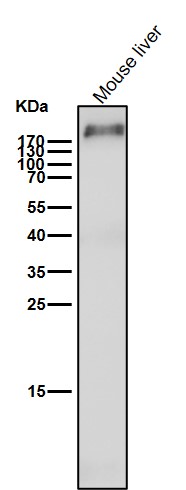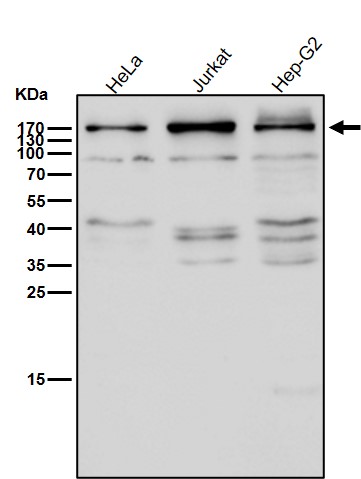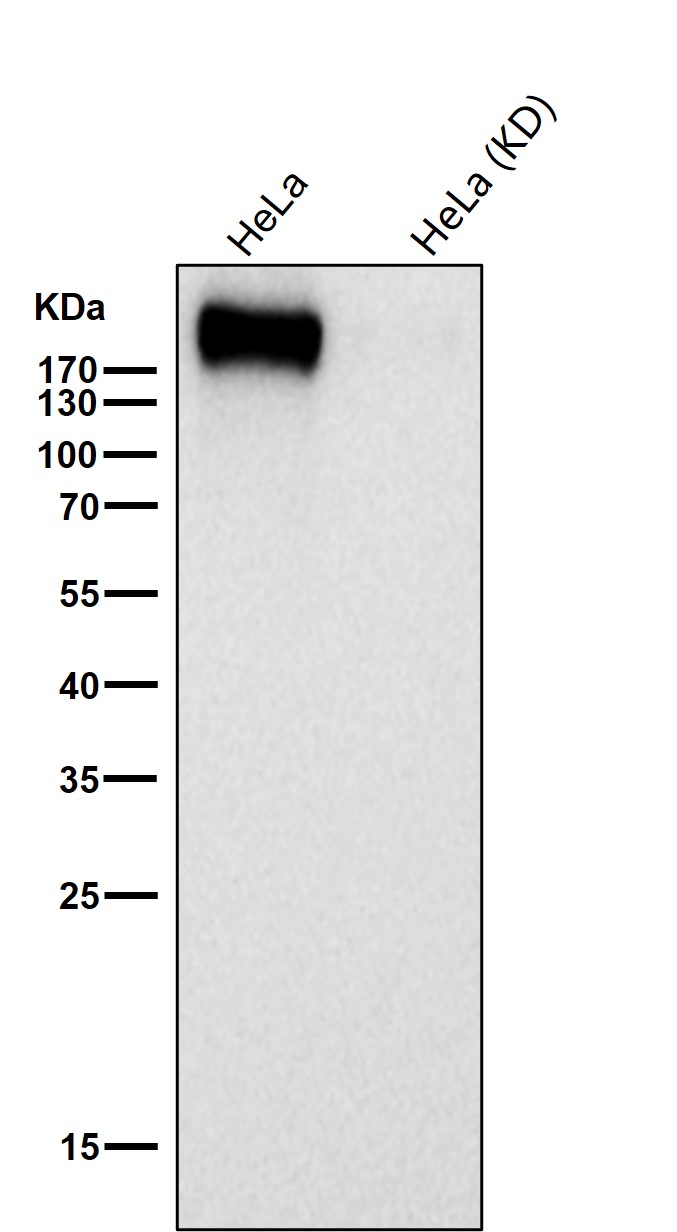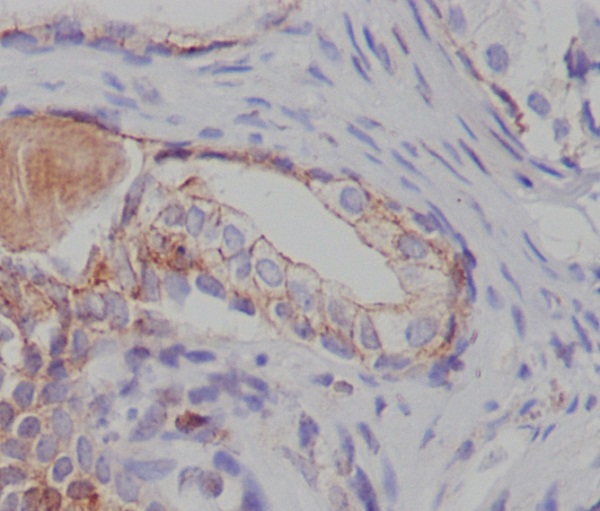



| WB | 1/1000-1/2000 | Human,Mouse,Rat |
| IF | 咨询技术 | Human,Mouse,Rat |
| IHC | 1/100-1/200 | Human,Mouse,Rat |
| ICC | 技术咨询 | Human,Mouse,Rat |
| FCM | 1/20-1/100 | Human,Mouse,Rat |
| Elisa | 咨询技术 | Human,Mouse,Rat |
| Aliases | TSC2; Tuberous sclerosis 2 homolog protein; Tuberous sclerosis 2 protein; Tuberin;;Tuberin |
| WB Predicted band size | Calculated MW: 201 kDa ; Observed MW: 200 kDa |
| Host/Isotype | Rabbit IgG |
| Antibody Type | Primary antibody |
| Storage | Store at 4°C short term. Aliquot and store at -20°C long term. Avoid freeze/thaw cycles. |
| Species Reactivity | Human,Mouse,Rat |
| Immunogen | A synthesized peptide derived from human Tuberin |
| Formulation | Purified antibody in PBS with 0.05% sodium azide,0.05% BSA and 50% glycerol. |
+ +
以下是关于Tuberin抗体的3篇文献示例(注:部分文献信息为示例性概括,可能需结合实际数据库检索验证):
1. **文献名称**:*"TSC2 phosphorylation regulates mTORC1 signaling and cellular responses to energy stress"*
**作者**:Inoki, K., et al.
**摘要**:研究TSC2/Tuberin在能量应激下的磷酸化修饰,利用特异性Tuberin抗体进行免疫印迹分析,揭示其通过调控mTORC1通路影响细胞代谢和自噬的分子机制。
2. **文献名称**:*"Loss of tuberin expression in tuberous sclerosis complex-associated tumors: an immunohistochemical study"*
**作者**:Plank, T.L., et al.
**摘要**:通过免疫组化分析结节性硬化症(TSC)相关肿瘤组织中Tuberin的表达缺失,证实TSC2基因突变导致蛋白质功能丧失,支持其作为病理诊断标志物。
3. **文献名称**:*"Tuberin regulates intracellular membrane trafficking through interaction with Rheb"*
**作者**:Sancak, Y., et al.
**摘要**:利用Tuberin抗体进行共免疫沉淀实验,发现Tuberin与Rheb蛋白相互作用,调控囊泡运输和mTOR信号通路的空间定位。
4. **文献名称**:*"Antibody-based profiling of tuberin expression in neuronal differentiation models"*
**作者**:Choi, Y.J., et al.
**摘要**:采用Tuberin特异性抗体分析神经元分化过程中Tuberin的表达动态,揭示其在细胞周期退出和突触形成中的潜在作用。
---
**注**:以上文献标题及内容为示例,实际引用建议通过PubMed或Google Scholar以关键词“Tuberin antibody”“TSC2 antibody”检索最新研究,重点关注实验方法学或疾病机制相关论文。
Tuberin, encoded by the *TSC2* gene, is a critical tumor suppressor protein that forms a complex with Hamartin (TSC1) to regulate cell growth and metabolism. This TSC1-TSC2 complex inhibits the mechanistic target of rapamycin (mTOR) signaling pathway by acting as a GTPase-activating protein (GAP) for Rheb (Ras homolog enriched in brain), thereby suppressing mTORC1-mediated anabolic processes. Dysregulation of Tuberin due to pathogenic mutations in *TSC2* is linked to tuberous sclerosis complex (TSC), a genetic disorder characterized by benign tumor formation in multiple organs.
Antibodies targeting Tuberin are essential tools in both research and diagnostics. They enable the detection of Tuberin expression and localization via techniques like Western blotting, immunohistochemistry, and immunofluorescence. These antibodies help elucidate the functional status of the TSC1-TSC2 complex, assess post-translational modifications (e.g., phosphorylation at Ser939 or Thr1462. which modulate its activity), and investigate mTOR pathway dysregulation in TSC-related pathologies. Additionally, they are used to study crosstalk between Tuberin and other signaling networks, such as PI3K/AKT, in cancer and metabolic diseases. Commercially available Tuberin antibodies vary in specificity, with validation often including knockout cell lines or tissue controls to ensure reliability. Their application extends to preclinical studies evaluating mTOR-targeted therapies, making them pivotal in advancing understanding of TSC and mTOR-driven disorders.
×